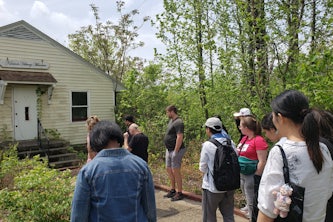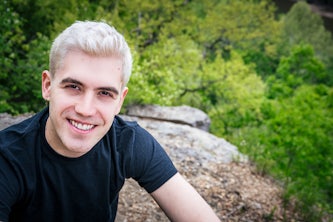Asking big questions about the role of science, engineering
The course “Historical and Philosophical Aspects of Science, Engineering and Technology” delves into ethical issues of science and engineering

Did you know that the man who helped develop the fertilizers that make it possible to feed the world also championed the military use of poison gas?
Fritz Haber, a German chemist, won the 1918 Nobel Prize in Chemistry for inventing a process key to creating synthetic fertilizers that contribute to two-thirds of annual global food production. Haber is also called “the father of chemical warfare” for creating ways to weaponize poisonous gases during World War I.
The history of science, engineering and technology includes many complicated people like Haber. To contextualize and examine this history, McKelvey School of Engineering Professors Richard Axelbaum and Gregory Yablonsky created a course titled “Historical and Philosophical Aspects of Science, Engineering and Technology.”
Read the full story here.




